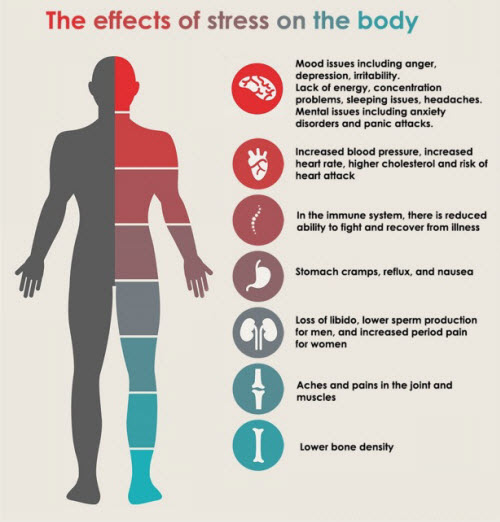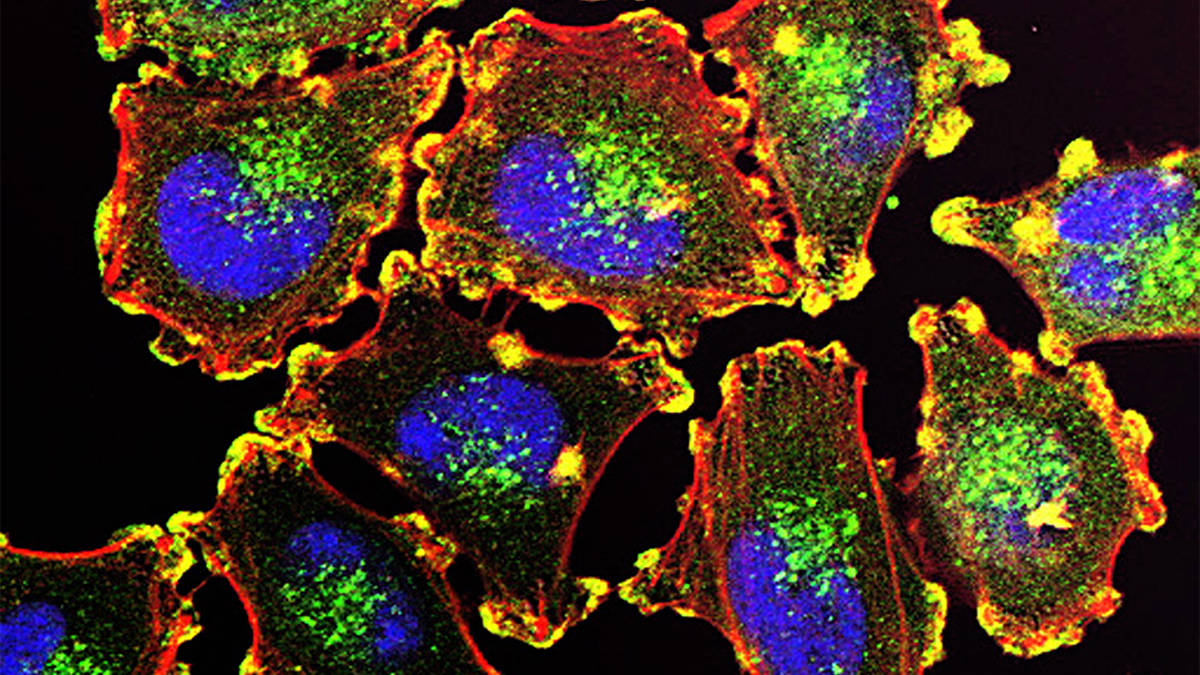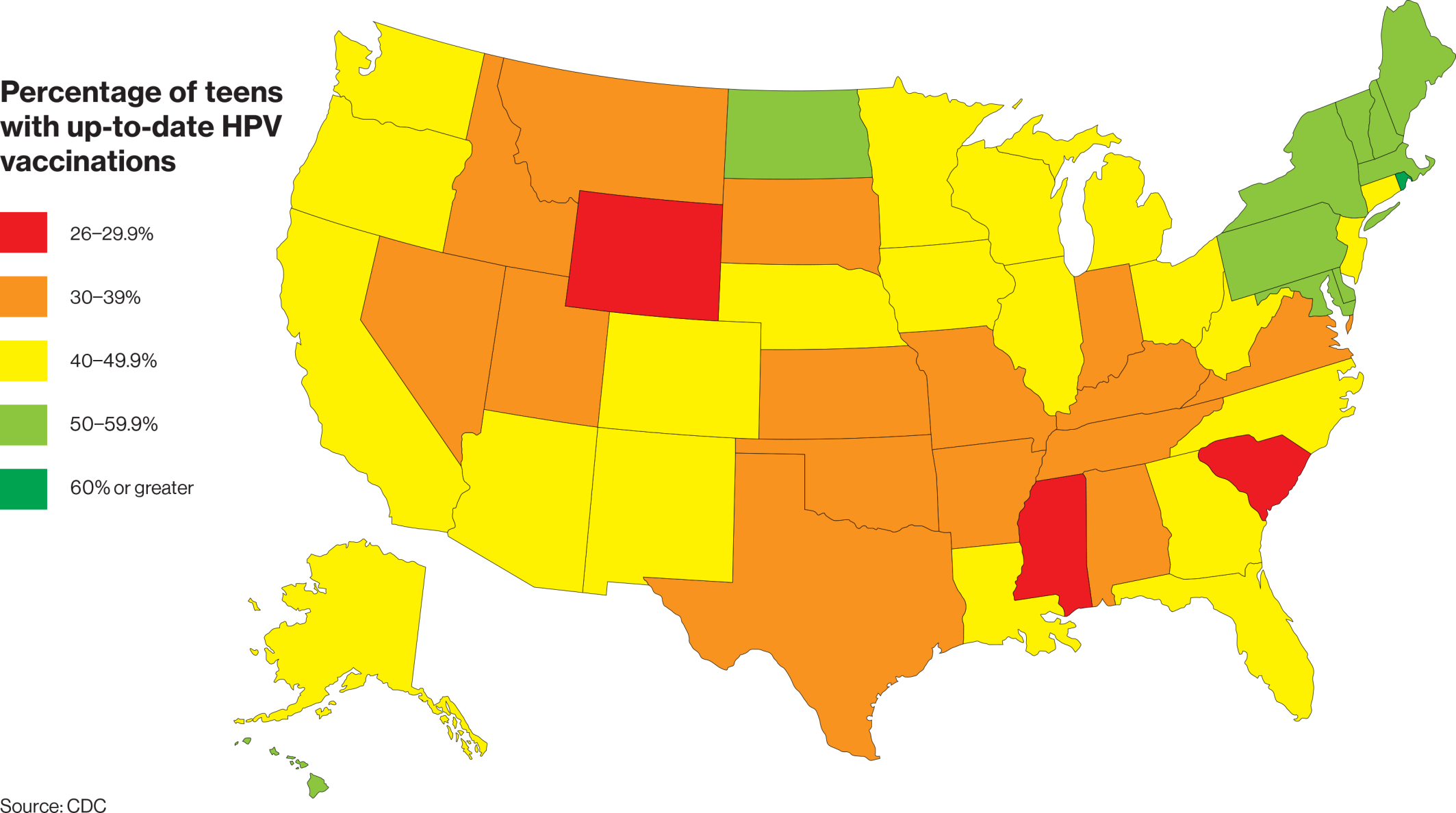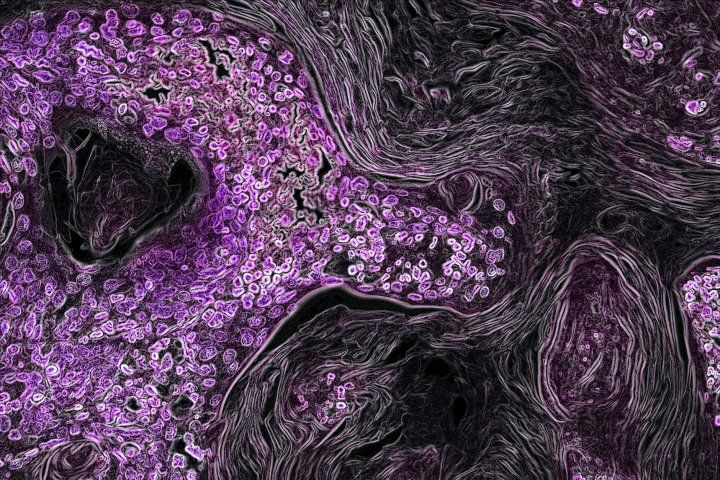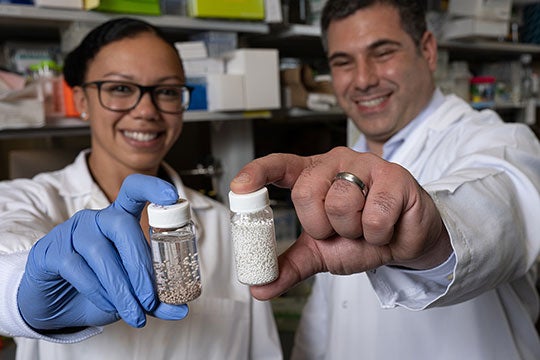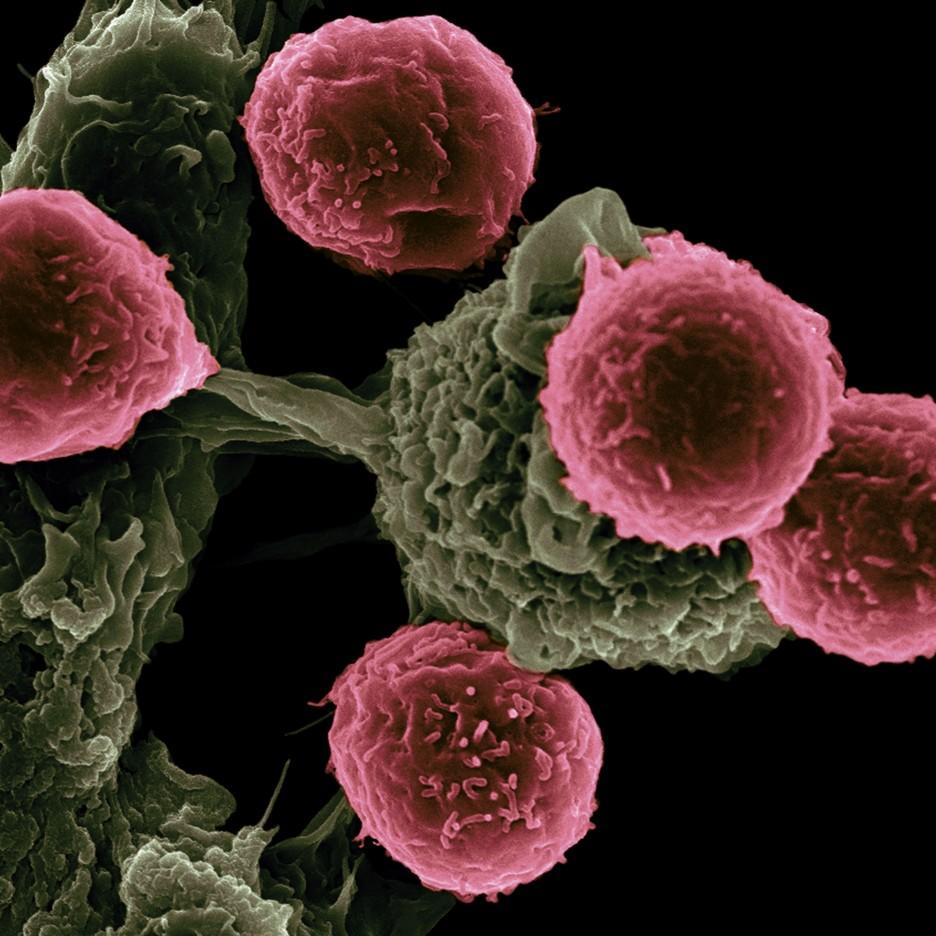 |
Treatment vaccines can help the immune system learn to recognize and react to antigens and destroy cancer cells that contain them. Credit: NCI and Victor Segura Ibarra and Rita Serda |
CANCER DIGEST– Dec. 17, 2022 – Early results of a preliminary clinical trial shows that a combination therapy for stage 3/4 melanoma that has spread to lymph tissues in the body reduced recurrence and death by 44 percent.



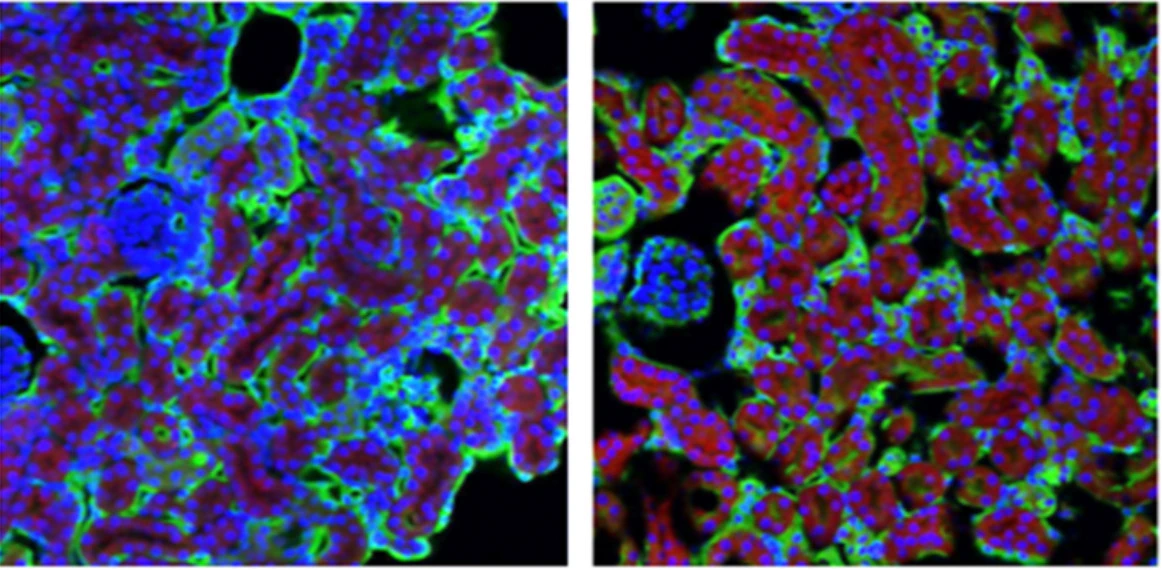




.jpg?h=d7af4a70&itok=JGCMRw9s)


